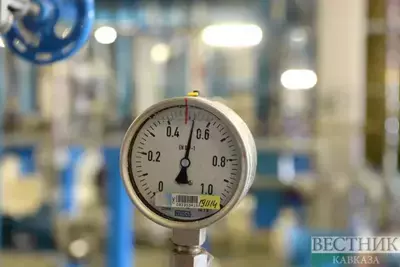The oil-rich former Soviet republic of Azerbaijan is investing heavily abroad, with its sovereign wealth fund and state oil company scrambling to diversify as weak crude prices and ultralow interest rates worldwide put their finances at risk.
Risky business
The State Oil Fund of Azerbaijan, better known as Sofaz, is looking to take on more risk, according to Deputy CEO Israfil Mammadov. The fund aims to soon lift its cap on investment in stocks, including private equity, from 15% to 25%, Mammadov recently told The Nikkei Veritas. Sofaz had $33.7 billion in assets under management at the end of June, of which bonds and short-term financial instruments made up roughly 80%.
The fund acquired Kirarito Ginza, a shopping mall in Tokyo's ritzy Ginza district, from Japanese leasing giant Orix last year for 52.3 billion yen ($496 million at current rates). Sofaz has also invested in funds involved in Japanese real-estate development, including logistics facilities and properties in outlying cities, Mammadov said. Sofaz plans to increase the share of its portfolio devoted to real estate to 10% from the current 5.5%.

Azerbaijan produced more than half the world's oil between the late 19th century and the early 20th century, while it was part of the Russian Empire. Output dwindled for lack of investment during the twilight of the Soviet Union, but picked back up after Azerbaijan gained independence in 1991, as oil and gas development in the Caspian Sea led by foreign players filled the country's coffers. The Azeri-Chirag-Gunashli field, Azerbaijan's largest, is being tapped by oil majors including BP, as well as Japan's Inpex and Itochu.
Oil and gas profits earned by the State Oil Company of the Azerbaijan Republic, or Socar, are relayed to the government via Sofaz. The fund sets aside money for future generations and helps maintain macroeconomic stability.
Sofaz's assets swelled 24-fold in dollar terms in the decade since 2006, though the pace has slackened since 2012 and assets declined last year. With historically low interest rates squeezing returns and the slump in crude oil prices eating into revenue, the fund is being forced to add more risky assets to its portfolio.
Expanding downstream
Meanwhile, Socar is focusing on downstream businesses abroad, such as refining, transport and power generation. The company is close to a broad agreement to buy a 49% stake in a Greek gas pipeline operator as part of the latter's privatization.
The move comes against the backdrop of Socar's participation in building a gas pipeline running from Albania, which borders Greece to the north, to Croatia. The Trans-Anatolian Natural Gas Pipeline and the Trans-Adriatic Pipeline are slated to start delivering gas produced in Azerbaijan to Italy via Turkey by 2020. Building a gas transport network on the Balkan Peninsula should bolster demand for Azerbaijani gas and encourage development of new gas fields.
In other downstream business, Socar plans to construct a gas-fired power plant in the island nation of Malta in the Mediterranean Sea.

The company also announced this month it has struck a deal to buy an oil storage facility on the western coast of Turkey, Socar's top investment destination. The facility will link up with a refinery under construction nearby. The area also features a port and a petrochemical plant run by a Socar subsidiary, making it a perfect example of the oil company's new strategy of adding value. Azerbaijani President Ilham Aliyev expects energy-related investment in Turkey to soon reach $20 billion.
Though crude oil recently touched a year-to-date high of just over $50 a barrel, it remains at less than half its peak several years ago. Azerbaijan needs oil at $60 to get by, a Socar source said. The country cannot afford to slack off on diversification. How it fares in this regard will do much to determine whether the young nation can build a solid foundation.
















